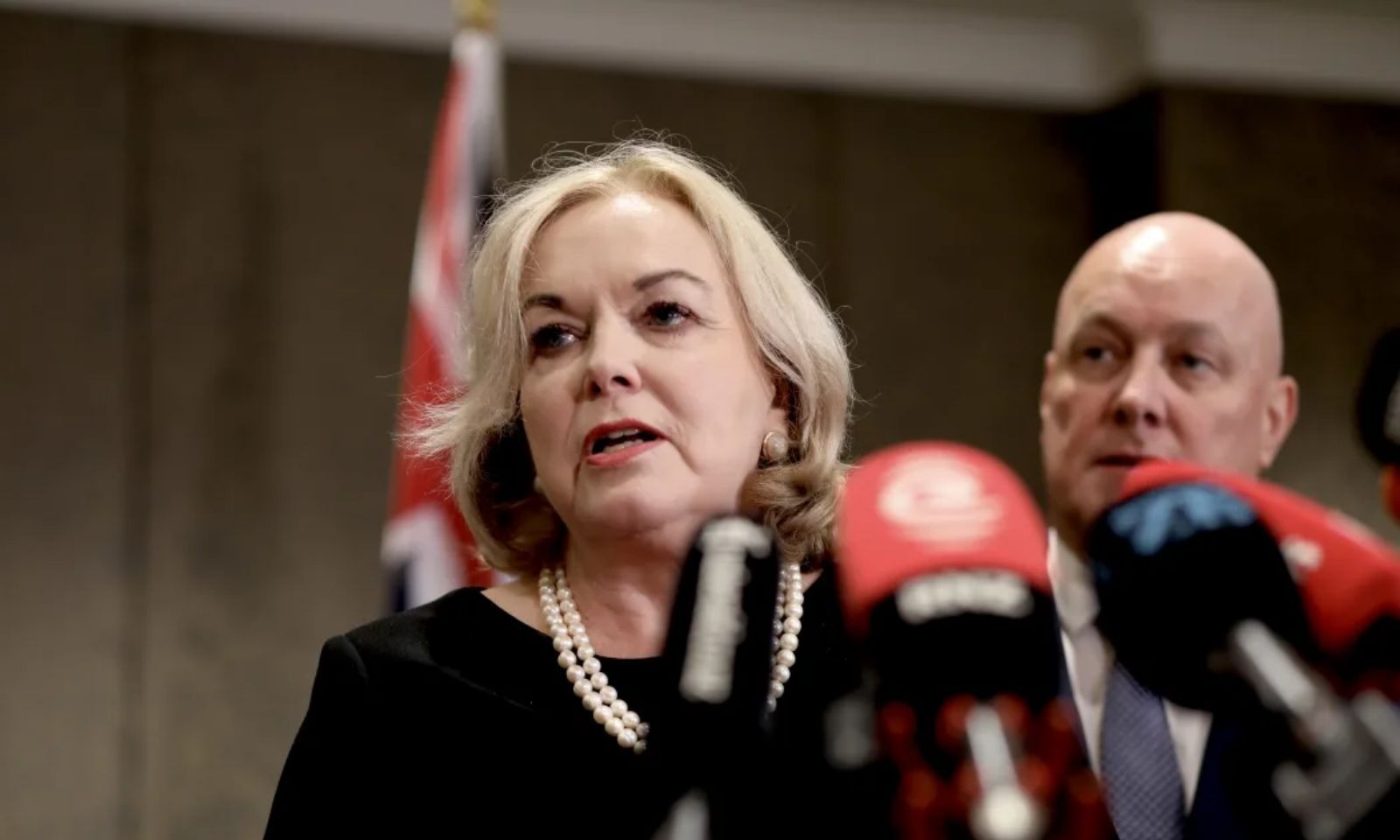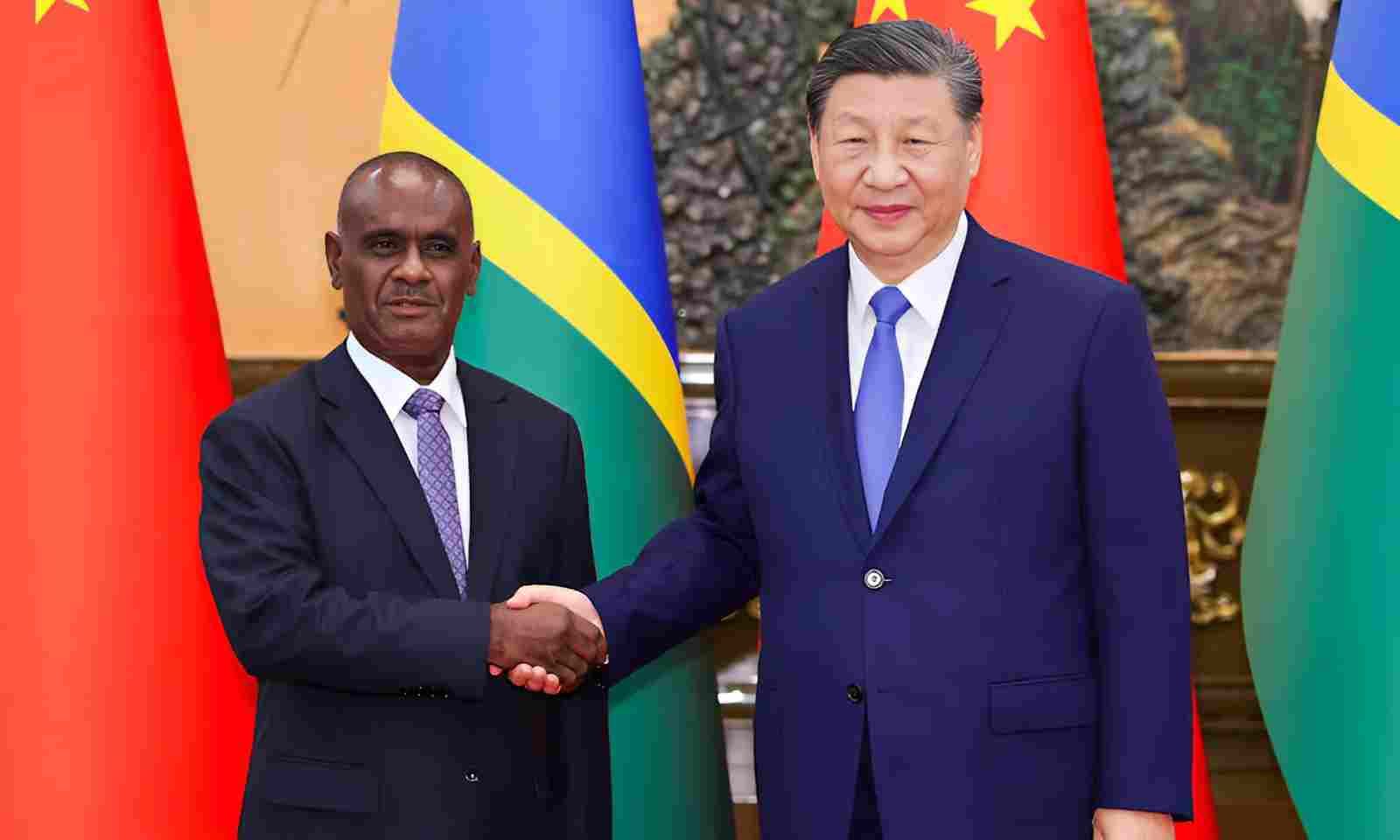

Minister of Defence Judith Collins says the NZDF informed them about China’s second live-fire exercise, following Prime Minister Christopher Luxon’s claim that Beijing had not notified them of its act.
Photo /Australian Department of Defense /RNZ/Samuel Rillstone
China’s ‘shot across the bow’ raises Pacific security concerns
A Canterbury University professor warns that China’s recent naval drills signify a dangerous turning point for the Pacific as Beijing’s military presence continues to grow in the region.




Tyrun re-imagines Niuean love in smooth new R&B single ‘Fila’




Tyrun re-imagines Niuean love in smooth new R&B single ‘Fila’
Concerns escalated this week after a Chinese naval task group conducted a second live-fire exercise in the Tasman Sea, just one day after an earlier drill.
New Zealand and Australian officials criticised Beijing for not providing advance notice, claiming that commercial flights were only alerted mid-air.
China has responded by saying that Australia is making "unreasonable accusations”.
Professor Anne-Marie Brady, an international relations expert from Canterbury University, told William Terite on Pacific Mornings that these developments raised significant “alarm bells”.
“We’ve entered into a new era now, a very dangerous one, and it’s going to be a turning point for our country but also the Pacific,” Brady says.
“This is a shot across the bow. China's sending a warning to Australia and New Zealand, and it's an indication that China's preparing for regular deployments to the South Pacific.
“China wants to rule the waves in the Pacific. It's challenging the existing strategic order, which has existed since World War II's end.”
RNZ reported Prime Minister Christopher Luxon saying that China did not inform New Zealand about its naval activities before the live-fire training conducted on Friday.
In a follow-up, Minister of Defence Judith Collins confirmed that the New Zealand Defence Force was not alerted about China’s second live-fire exercise on Saturday afternoon.

Defence Minister Judith Collins, left, and Prime Minister Christopher Luxon. Photo/RNZ/Marika Khabazi
Geopolitical tensions in the Pacific
Brady says there is a longstanding geopolitical struggle for influence in the Pacific between China and the United States, with China aiming to “push the US out of the Pacific, or at least out of East Asia”, which could impact the security of New Zealand and the Southern Pacific.
“The US and China have had negotiations about their maritime relationship over a number of years, and the US has discussed with China, ‘could they patrol the waves together’?”
The formalisation of a comprehensive strategic partnership between China and the Cook Islands, covering trade, infrastructure, and seabed mining, has raised concerns in New Zealand, particularly due to the constitutional ties between Aotearoa and the Cooks.
Brady says the timing of China’s live-fire exercises alongside their agreement with Rarotonga is not coincidental.
Under a free association agreement, the Cook Islands relies on New Zealand for defence and national security guidance.
Brady says, “New Zealand is supposed to defend the Cook Islands."
Watch Anne-Marie Brady’s full interview below.
She also emphasises that local populations might not fully support the decisions made by Prime Minister Mark Brown, suggesting that increased scrutiny and open dialogue are necessary to address maritime and military concerns.
Brady says the lack of a security agreement linking Pacific nations is because of their colonial past during World War II when New Zealand, Australia, the United Kingdom, and the US worked together to force imperial Japan from the region.
“So since the end of World War II, the security arrangements in place have kept the peace for more than 70 years, and China wants to change that now.”
China’s growing influence
Over the years, China has expanded its influence in the Pacific through various means, including police training programmes and security agreements.
This includes multiple pacts with the Solomon Islands, Fiji, Vanuatu, and Kiribati, which recently severed ties with pro-West Taiwan.
According to Brady, these actions are part of a broader strategy.

Solomon Islands Prime Minister Jeremiah Manele met with Chinese President Xi Jinping in Beijing last July. Photo/Liu Bin
“It's related to a series of actions that China has taken over a number of years in normalising its military presence across the Pacific through dual-use activity,” she says.
“Those series of agreements that the Cook Islands government signed with China will include dual-use facilities - that's civil-military-use facilities, ports, and other infrastructure.”
She says similar agreements have been observed with the Solomon Islands in 2022 and Vanuatu and Kiribati recently.
“There's been a lot going on in the Pacific with China and military and intelligence deployments that have been steadily building up through channels that may look permissible but actually have serious security implications.”